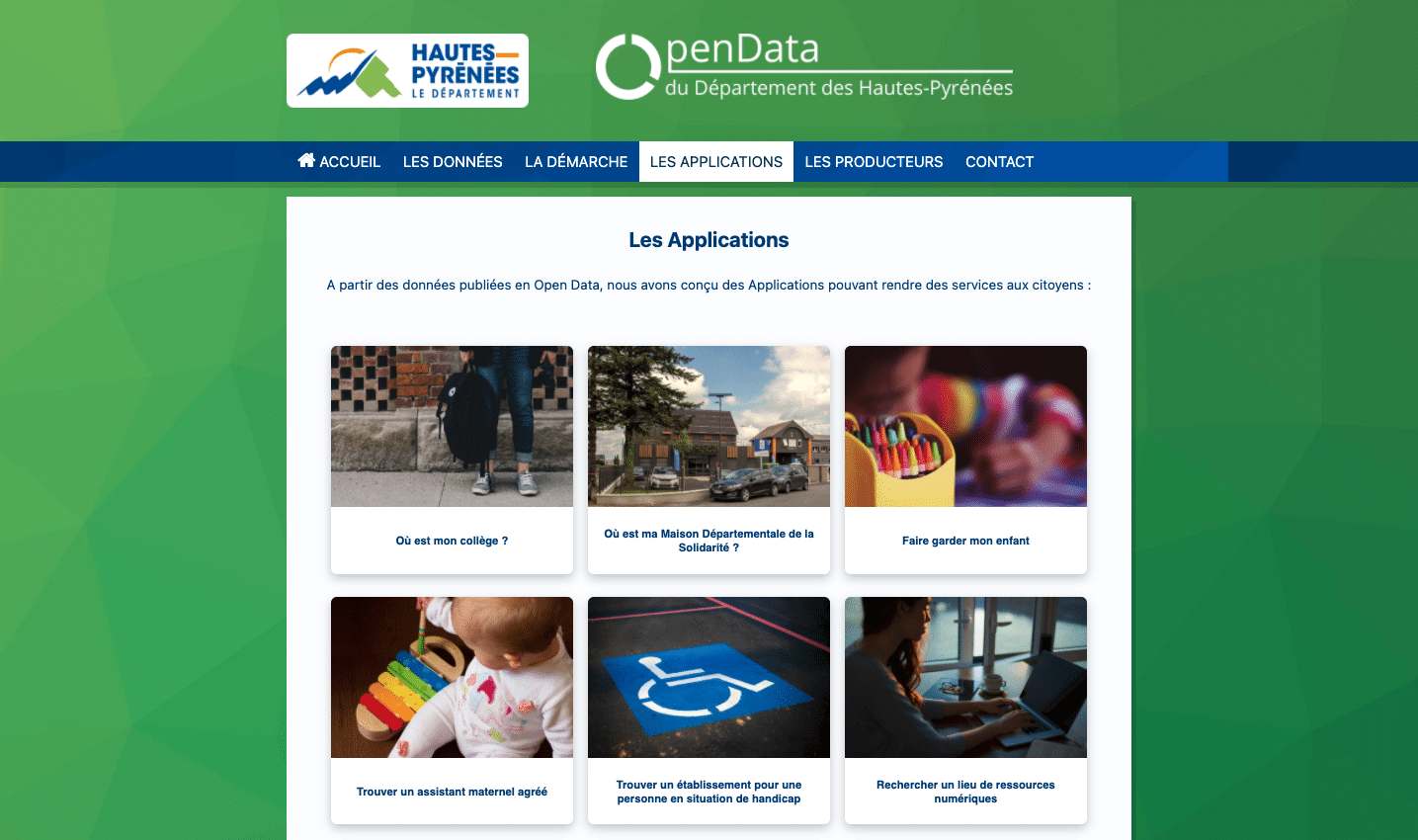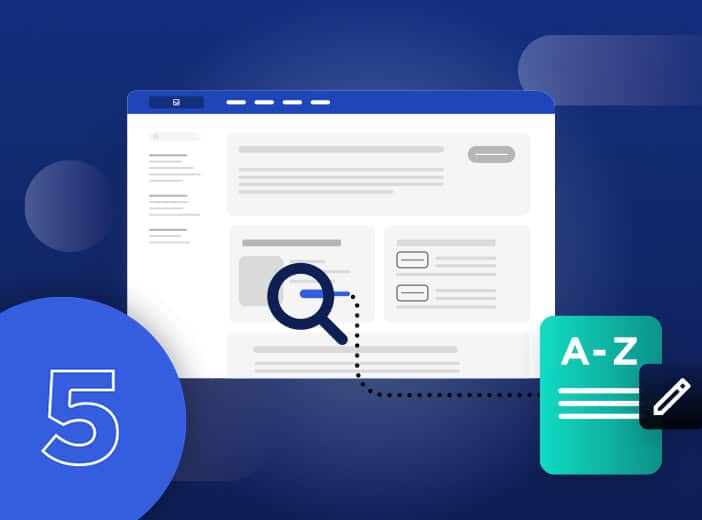The 3 keys to creating a data-driven culture at your organization
In this month's webinar, we wanted to address a topic that affects both private companies and public organizations: how to create a data-driven culture.

Creating a data-driven culture is a very broad subject that incorporates issues regarding communication, digital transformation, and of course, data governance. This is what makes it so interesting!
We spoke to Jérôme Guinle from the Hautes-Pyrénées Regional Council and François Herlent from the MAIF to learn more about this topic. Although Jérôme and François both started using data in 2016, their experiences have been very different.
During our discussion,I was amazed by the scope of the issues involved in the process of creating a data-driven culture, as well as the obstacles, solutions, and benefits that arise along the way.
François and Jérôme may have different feedback and viewpoints, but these differences work extremely well together! You’re sure to get some good ideas that can be implemented at your organization.
This article summarizes the main points from the webinar. For more details, feel free to watch the video (in French).
Have a clear idea of how to structure your data sharing project
For Jérôme, it all started with a training session that allowed him to learn the basics of open data and create a proposal for structuring a data sharing project at his organization. He says it best himself: “Our goal was really quite ambitious. We wanted to create a public service based entirely on data by developing an open data portal. “A little later, we’ll see that their goal was achieved with flying colors!
As for the MAIF, François explains that
“unlike Jérôme, our goal was not to create an open data portal. On the other hand, we wanted as early as 2016 to set up governance to secure our data, to ensure personal data was processed properly, and to promote the value of data within the company by developing better ways to share it.”
Data sharing at the MAIF took place in phases. François explains: “We made open datasets available on the internal MAIF portal to enhance our studies.” Among other things, they have shared INSEE data (e.g., SIREN) and public data from data.gouv.fr (BAN/BANO).
“We’re interested in open data, but it’s not our priority. We’re more focused on inventorying our internal data (understanding its origin, path, sources, and definitions) and determining how data is used at the MAIF (by whom and for what purpose).”
The MAIF has always been about “capitalizing on the human element.” The company set up a group of data experts (there are 34 experts today), each of whom specializes in one area. This group “now has a handle on almost half of the MAIF’s data.” Impressive!
If you’re also interested in sharing your data but not sure where to start, I recommend taking a look at this article for some quick and easy tips.
Remove obstacles before creating your data-driven culture
We asked François and Jérôme about the obstacles they faced while creating their data sharing policy. Their answers were very different! François shared some interesting insight on the problems that organizations may encounter.
At the MAIF, they needed “the support of management to experiment with internal data sharing in order to not only share the definitions, but also the datasets.”
The first obstacle is related to the quality of the data, or the so-called myth of zero defects. He explains:
“I know that my datasets aren’t perfect. But data sharing is also about sharing the problems you encounter. It’s easier to share a pretty graph or an analysis with a comment that doesn’t tell the whole story about the quality of the data.”
The second obstacle – which exists at all organizations – is the cultural obstacle. By
“sharing the data that I used for my analyses, I allow others to perform the same analyses and compare my results with theirs. This can lead to competition and criticism.”
Data sharing requires a major shift in how you see data. But as François aptly explains,
“the data belongs to the company and, with the exception of personal data, must be able to be shared internally.”
For Jérôme, the question of obstacles was simple: “We didn’t really encounter any at all, which was quite surprising.”
But when we asked him for details, we realized this wasn’t so surprising after all.
Jérôme outlined the steps he took before getting started and which contributed to his success:
- He set up a decision-making system (dashboards, data warehouse, statistical indicators, etc.) that allowed him to locate and make the best use of the data.
- Like François, he “relied on a network of in-house experts to determine which data to publish.”
- He focused on quality rather than quantity – in the case of the Hautes-Pyrénées Regional Council, this meant “striving to ensure the published data was as up-to-date as possible and, depending on the field, complied with all applicable standards and regulations.”
The watchwords are therefore data knowledge, governance, and support.
Want to learn more? Click here to discover the interview of Pierre-Philippe Cormeraie of BPCE.
A successful data-driven culture permeates the entire organization
After discussing the obstacles that can stand in the way, we naturally wanted to explore best practices and get some tips on how to successfully create a data-driven culture.
Two things stood out in their responses: proof by example and the importance of implementing the culture at every level of the company.
Jérôme was the first to weigh in on these two notions:
“It was important for us to get everyone on board for the project, from our elected representatives to our Service Director, deputies (sponsors), and agents, who rely on open data to enhance their work. We also needed concrete examples of the datasets we planned on publishing to demonstrate their effectiveness and significance.”
Jérôme invites us to see for ourselves by discovering the open data portal of the Département des Hautes-Pyrénées.

The portal features an “Applications” page which makes it easy for citizens to find data by highlighting datasets that meet their own specific needs. The page also offers a variety of services and perfectly demonstrates how Jérôme and his team approach open data. The team (Jérôme, Camille, Eric, and Fabrice) strives to provide datasets with that little something extra which makes them easy for users to access.
Jérôme explains:
“Proof by example is extremely important. I’m convinced that it plays a vital role and helps improve the work of our agents.“
But how can he be so sure? Jérôme explained that things are quickly changing at his organization. Whereas he was the one hunting for data in the past, today it’s the agents, the business services, and the elected representatives who wish to publish their data.
To support this trend, he set up a practical course on a culture driven by open data. Jérôme: “The course will be offered to all the managers at our organization. By the end of it, the managers will hopefully be empowered to take action and able to answer the following question: ‘If you had to share data on an open data portal, which data would it be?'”
François launched a similar initiative at the MAIF. Two years ago, he created online courses (called “Moocs”) for employees to explain, among other things, the importance of governance, the principles of personal data, data security, and the various roles of data.
François: “This year, the MAIF is even offering two days of training on data-driven cultures to its business analysts, i.e., all the employees who modify the company’s data during their projects. Since these analysts define how our information is entered (via which interface, list of values, etc.), it is important that they play a role in developing our approach.”
To be honest, I was most impressed with the MAIF’s annual “Dataday” initiative. What I really like about this event is that governance is treated in the context of several different topics (AI, cybersecurity, open data, digital responsibility, etc.), because let’s face it, governance is not a subject that resonates with everyone. But as François reminds us, the most important thing when creating a data-driven culture is to launch as many initiatives as possible (quality control, data sharing, etc.). It is only through continuous hard work that you will allow the data culture to accelerate at your company.
François added that “it’s important to have this data-driven culture at our company.” For him, governance is just the beginning. He concluded by saying that “data sharing is the next step. We know that if we share datasets, people will access them, use them, take ownership of them, and be eager to improve their quality or revise their description.”
But that’s a subject for another time! If you want to learn more about this topic, I recommend this article which will show you how to get ready to launch a data sharing project.
During our discussion with François and Jérôme, three main concepts emerged: structuring, training, and proof by example.
For more information, feel free to watch the full interview!



